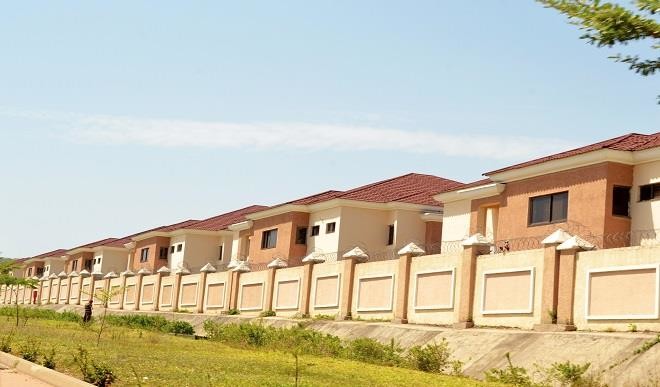‘Tenants spend over 60% income on rent’
This year’s edition of the annual Abuja Housing Show (AHS) has come and gone with the housing sector stakeholders leaving in its trail a robust and far-reaching decision on how to move the housing sector forward. In a communiqué issued at the end of the 10th edition of the show entitled: “Expanding Access to Affordable […]


This year’s edition of the annual Abuja Housing Show (AHS) has come and gone with the housing sector stakeholders leaving in its trail a robust and far-reaching decision on how to move the housing sector forward.
In a communiqué issued at the end of the 10th edition of the show entitled: “Expanding Access to Affordable Housing in Africa’’ the participants observed that there is the growing need to expand access to housing in Nigeria and Africa and that the implications of the high deficit in housing stork is that tenants now pay over 60% of their disposable income on housing instead of the 20-30% advocated by the UN.
They also called for effective mortgage system with indigenous technical inputs and private participation, noting that there are serious barriers to housing provision in Nigeria and there is the need for proper amendment of the laws and the constitution in this regards.
The communiqué reads in part: “Commercial banks’ lending is unaffordable. The Land Use Act of 1978 needs to be repealed.
There is no quick fix to Nigerian housing problems – we need to address all the challenges. Master plans have indicated development problems, and development standards and procedures are due for reform, hence, the creation of slum settlements. There is no doubt that Nigerians can and are building houses. What is needed is access to affordable housing. But, there is need to define affordable housing, knowing that a 100% home ownership is a utopia. We must define Affordable Housing.’’
They stressed that affordable housing can create jobs as it has a large market in millions while calling for measures to be put in place to prevent the rich from buying off potential low income houses as well as for the involvement of government at all levels of housing provision deliberations.
“Government should and need to be involved, because only 54% equity contributed has worked. Government can provide land cheaply to reduce cost by 25%. Government can provide infrastructure to reduce cost by another 25%. Mortgage loans can be amortized successfully when deducted from source.
“Most Nigerians are living in slums with no access roads, water and light. We need urban regeneration not new built houses. For example, in 1977, roofing loan was introduced. Since it takes 15-25 years to build a house due to lack of finance and, not land, then massive urban regeneration through instruments like home completion loan can help. Cooperatives can also come in because there is no collateral but membership of a cooperative society,’’ said the communiqués.
